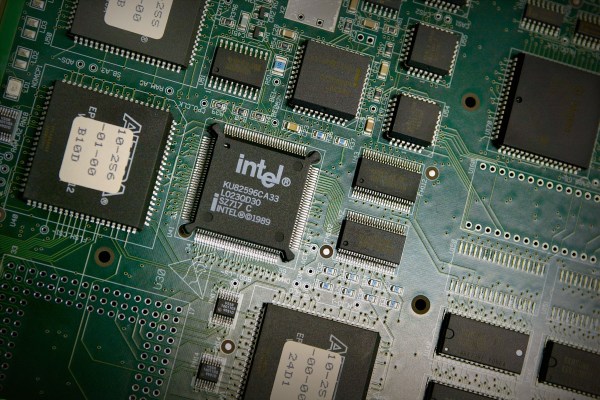

The third-quarter earnings cycle is just getting underway, but we’ve already seen a few companies post numbers that investors did not like. Netflix missed on several metrics yesterday and was punished, and today Intel is joining the video streaming giant in stock-market purgatory.
Intel shares are off around 10% in after-hours trading after the chip company reported its Q3 data. Investors had expected Intel to report an adjusted $1.11 in per-share profit, off around 22% from the year-ago period. They also expected it to report revenues of $18.26 billion in Q3, down a more modest 5% compared to the year-ago Q3.
Notably, Intel beat revenue expectations with top line of $18.3 billion, and met earnings-per-share estimates of $1.11, on an adjusted basis.
So, why are Intel shares sharply lower?
Quick consensus appears to point to weakness in the company data-focused business unit, the smaller of Intel’s two halves (the other focuses on PC chips). Inside the data-side of Intel, its Data Center Group (DCG) had mixed results, including cloud revenue growth of 15%. However, at the same time, the DCG’s “Enterprise & Government” business shrank 47% compared to the year-ago period, following what Intel described as “two quarters of more than 30 percent growth.”
Off that weakness, the resulting top line miss was sharp, with the market expecting $6.22 billion in revenue and DCG only delivering $5.9 billion.
Intel blamed COVID-19 for the weak economics conditions at play in the result. The company also highlighted COVID-19 when it discussed results from its internet of things business and memory operation, which declined 33% and 11% on a year-over-year basis, respectively.
Perhaps due to COVID-19’s recent resurgence in both North America and Europe, investors are concerned that the macroeconomic issues harming Intel’s growth could continue. If so, growth could be negative for a longer period than anticipated. That perspective could have led to some selling of Intel’s equity after the earnings report.
Could guidance have a part to play in Intel’s share price decline? Probably not. Better than what it reported for Q3 2020, Intel’s forward guidance shows a small revenue beat versus expectations, and a small profit beat as well. Intel forecasts revenues of $17.4 billion for Q4 2020 and adjusted earnings per share of $1.10, while the street was looking for $17.34 billion in top line and adjusted earnings per share of $1.06.
Given that Intel is prepped to best expectations in Q4, it’s hard to pin its share-price declines on guidance. That leaves the weakness in its data business as the most obvious culprit.
It is dangerous to over-describe why a stock or a group of stocks move at any given time. But in this case, it seems plain that the revenue miss inside Intel’s data business was at least a portion of why it shed value. As to whether the company’s COVID-19 notes are valid is up to you and how you handicap the broader economy.

